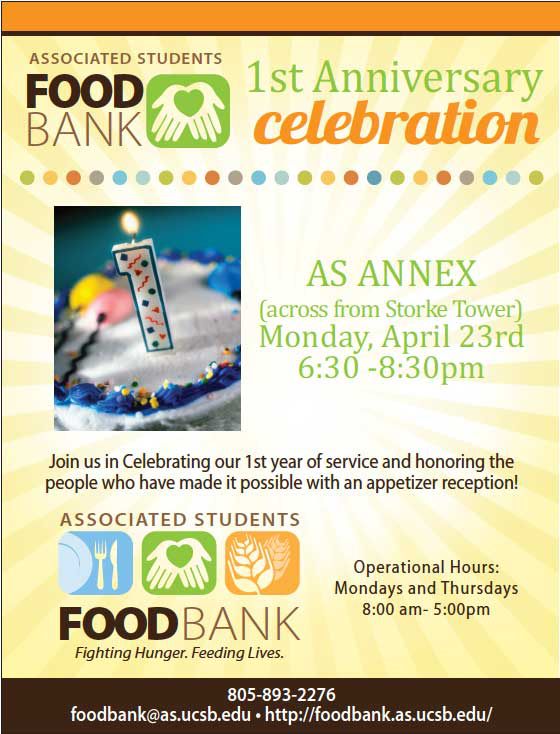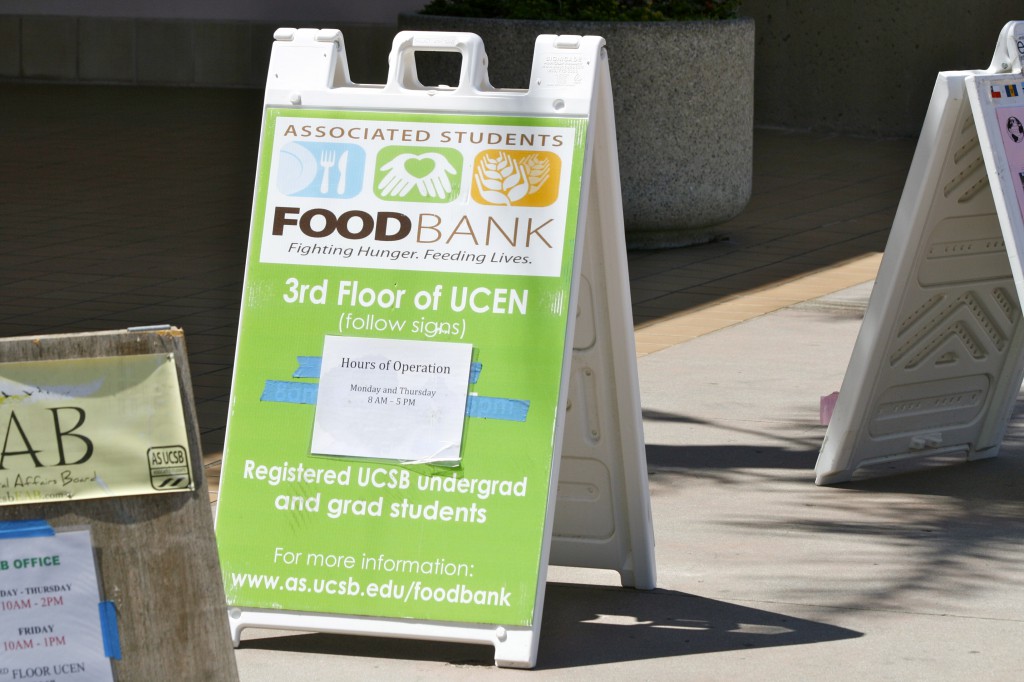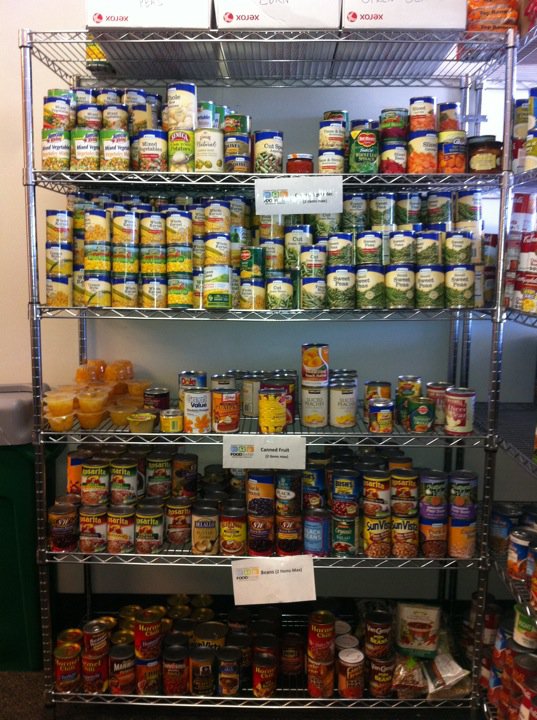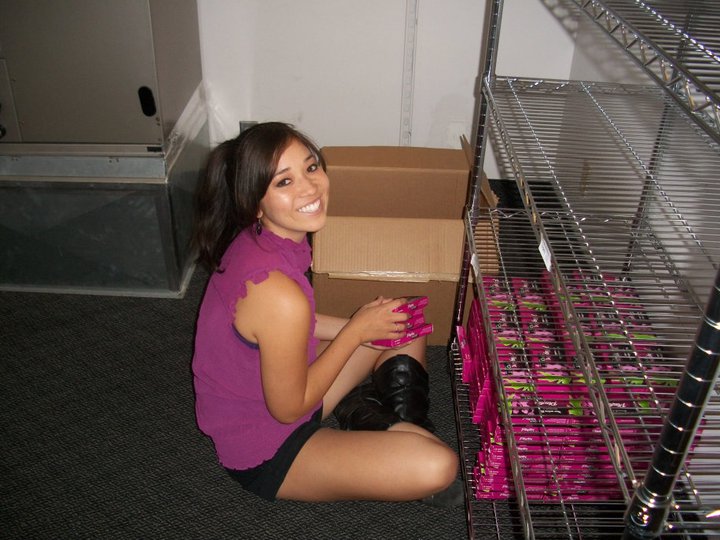Introduction
The A.S. Food Bank celebrated its first year of operation on April 19, 2012! By Spring 2012, the bank averaged 80 visits a week. In its first year of operation the bank served 684 students making a total of 3860 visits with minimal advertising.
Summary
The A.S. Food Bank has been operating with food and monetary donations provided by Associated Students; various UCSB organizations, staff, faculty, and students, including the A.S. Office of the President, Business Services Advisory Committee, Student Initiated Recruitment and Retention Committee, Graduate Student Association, Housing and Residential Service Employees, Alumni Association 2011 Senior Class Gift; and a variety of community donors. The success of the program is the result of community acknowledgement of the struggles of students to afford college and the need for supplemental funding to keep the Food Bank fully operational.
Students showed their support with the passage of the AS Food Bank Undergraduate Student Fee Initiative which provided a lock-in of $1.81 per student per quarter with over 4,700 votes. The Graduate students also passed an $.85 fee to help pay for operational and food costs.
The Food Bank’s shelves were initially stocked with food donations from across campus and support of the Greek community. Food drives including, departmental drives, such as Student Affairs, and individual student organization drives, such as the Greek Life Quarterly food drive, generated a significant amount of food for students in need. Additionally, a collaboration with the IV GIVE project helped to salvage non-perishable food that would have gone to the landfill.
With well marked donation bins throughout campus, people were able to clear out their pantries of food that they no longer use and drop it off to provide food for students in need. Due to all of these generous donations, the bank didn’t have to tap into its monetary donations to buy additional food until mid year. To encourage sustainable practices, the bank also reused plastic and paper grocery bags.
When donations decrease, the bank had to make purchases at Costco or Albertsons for needed staple items, including breakfast items, canned vegetables, canned fruits, beans, canned soups, canned meat, starch Items, like pasta and rice, sauces, and toilet paper. During the Fall and Winter quarters, the bank purchased anywhere from $300-$400 worth of goods per week. This increased to almost $500 per week in some weeks of Spring quarter. This increase was due to an increase in demand as well as a decrease in food donations.
Although most of the monetary donations were spent on food, the bank also had to spend money on various operational costs, including student staff to assist students when they came to the bank. In addition there is the cost of a career staff advisor, which will only be paid by Associated Students through Fall 2013. With all of this in mind and responding to the concerns of many donors, the Food Bank needed to explore long term funding for staff, operational costs, and food purchases. This led to discussions with resulted in the Food Bank Committee’s decision to initiate what became the AS Food Bank Fee Initiative a student fee lock-in to ensure the long term financial viability of the program. The Graduate Student Association also proposed its own fee initiative. In keeping with UCSB students’ longstanding tradition of acting to benefit the community, both ballot initiatives passed!
The Food Bank Committee is committed to continue donation efforts to expand AS Food Bank services to students in need through weekly operations as well as increasing educational outreach on campus. Although the AS Food Bank service has increased, there are many more students that the bank has not been able to reach due to its limited resources.
Passage of the fee initiatives will help students sustain the A.S. Food Bank, though more funding and donations are needed to distribute perishable food, which is something that students are working with UCSB administrators to make a reality.
Beyond just providing emergency food, AS Food Bank Committee and Staff would like to also encourage a healthy and nutritious food culture through conducting educational and cooking workshops to help students learn how to better cook for themselves to save money and gain nutrient rich food. We would like to provide alternative programs until we are able to distribute fresh fruits, vegetables, and perishable foods that would help us reach that goal and reduce food costs.
The A.S. Food Bank seeks to dismantle the culture of shame surrounding receiving free food. Ongoing donation drives and outreach raise awareness in the UCSB community of the needs of students in these hard economic times. They also help to change the culture and conversation regarding food security.




